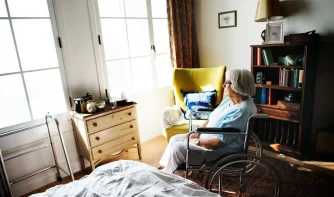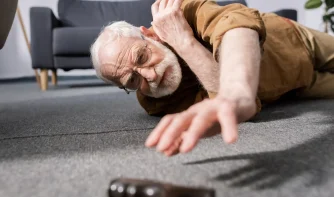Yes. You can sue a nursing home for sepsis if negligence caused or contributed to the condition. However, to have a successful case, you must prove that negligence took place by establishing that the facility owed a duty of care to your loved one, breached that duty, and that the breach caused harm resulting in compensable damages.
Any time facilities fail to prevent, recognize, or properly treat infections, the victim or their family may be able to hold the company or its staff responsible. Olson Personal Injury Lawyers has a track record of success in handling nursing home abuse cases. Call our law office today at (505) 391-8978 to schedule a free consultation.
Key Takeaways
- You may sue when failures in infection prevention, recognition, or timely treatment lead to harm—you must prove duty, breach, causation, and damages.
- Recoverable compensation can include medical bills and care costs, pain and suffering, and loss of quality of life.
- Punitive damages may apply in cases of gross negligence; wrongful death claims are also possible.
- Filing deadlines generally run two years in Colorado and Wyoming and three years in New Mexico. Key evidence includes medical records, infection-control documentation, staffing logs, and expert medical testimony. Arbitration agreements do not always bar lawsuits.
When Can You Sue a Nursing Home for Sepsis?
Several different forms of nursing home negligence can lead to sepsis development, including the following:
- Failure to recognize early signs of infection, such as fever, confusion, or rapid heart rate
- Inadequate infection control measures, such as poor wound care, catheter or IV line mismanagement, or hand-hygiene lapses
- Delayed medical treatment or improper care, such as a failure to transfer to a hospital when indicated, or administer timely antibiotics
Duty of care standards under federal and state regulations require you to show evidence of negligence by the facility or its staff. This typically involves establishing that they owed you or your loved one a duty of care, that they breached this duty through their actions or inactions, and that this breach led to compensable damages, such as medical bills and pain and suffering.
What Must You Prove in a Nursing Home Sepsis Lawsuit?
There are four primary elements of negligence: duty, breach, causation, and damages.
- Duty of Care: Nursing home facilities have a duty of care to prevent harm to their residents.
- Breach of Duty: The facility or staff failed to meet applicable standards (such as infection-control policies or a timely clinical response) through intentional or unintentional action, which can result in a breach of duty.
- Causation: Medical records and expert testimony can be used to link the breach to the infection/sepsis and resulting harm.
- Damages: The resident suffered compensable losses (i.e., medical bills, pain and suffering, loss of quality of life).
Nursing homes have a higher duty of care for infection prevention, since this risk is more prevalent in these types of environments. When your loved one develops sepsis, our team can review their case to determine whether negligence played a role.
What Types of Compensation Can You Recover?
There are several forms of compensation available in nursing home abuse cases. These typically fall into two main categories called economic and non-economic damages.
Economic damages consist of the tangible, objective losses from a personal injury, including the following:
- Past and future medical expenses
- Out-of-pocket costs
- Rehabilitation
- Additional care costs
Non-economic damages make up the more subjective losses from an accident, such as:
- Pain and suffering
- Loss of quality of life
- Emotional trauma
- Permanent scarring
A compensation award can also cover wrongful death damages if sepsis results in a loved one’s passing. If a case involves gross negligence, which may occur in a nursing home abuse incident, the court may provide punitive damages to punish the defendant.
Every case is unique, and compensation may vary. Our experienced attorneys can help determine the applicable compensation for your claim.
Most of our firm’s nursing home abuse case results are confidential. Attorney Matthew Broderick recently secured a $700,000 settlement for a case where a client developed a pressure ulcer on his remaining foot after a below-the-knee amputation, due to the nursing home’s failure to reposition and offload his foot properly. The ulcer became infected and required the amputation of his remaining leg.
How Long Do You Have To File a Nursing Home Sepsis Lawsuit?
The amount of time you have to file a lawsuit will depend on the state you are in. In Colorado and Wyoming, the statute of limitations affords you two years to file a claim for nursing home negligence. However, in New Mexico, the deadline extends to three years. It is essential to act quickly to preserve evidence and witnesses.
Key Evidence and Legal Requirements for Your Nursing Home Sepsis Case
What Evidence Do I Need for a Nursing Home Sepsis Lawsuit?
Any form of evidence that points to the at-fault party’s negligence is key to winning a lawsuit. Some examples include:
- Medical records from nursing homes and hospitals
- Infection-control policies and logs (hand hygiene, wound care, catheter/line care)
- Staffing schedules and training materials
- Expert medical testimony
How Much Does It Cost To Sue a Nursing Home?
Our firm operates on a contingency fee basis, meaning you pay nothing unless we win. This allows you to work with us without any financial burdens or obligations.
Can I Still Sue if My Loved One Signed an Arbitration Agreement?
Courts may enforce arbitration agreements, but they may permit you to file a lawsuit if you were unaware of your rights or if your claim is outside the scope of arbitration, such as in cases of gross negligence.
If a plaintiff unknowingly enters into an arbitration agreement due to coercion or deception, or if the agreement’s terms compromise their ability to assert their rights, courts may invalidate the contract.
Steps To Take if You Suspect Nursing Home Sepsis Negligence
You can take proactive steps if you suspect nursing home abuse is taking place, beginning with the following:
- Seek immediate medical care, or call 911 for emergencies, and ensure appropriate hospital evaluation
- Document all symptoms, medical care, and communications with staff
- Obtain copies of facility and hospital records as soon as possible
- Report concerns to state regulatory agencies
- Consult with an experienced nursing home abuse attorney
- Consider transferring to different facilities if ongoing care is needed
Not sure what to do next? We’re here to listen and help. Contact Olson Personal Injury Lawyers and speak with one of our experienced nursing home abuse attorneys—we’ll explain your options, help preserve key evidence, and handle the legal details while you focus on care.
Trust the Team at Olson Personal Injury Lawyers To Help You Seek Justice
Nursing homes are expected to provide optimal care to their residents, prioritizing safety and wellness. When you or a loved one develops sepsis due to a negligent nursing home facility, Olson Personal Injury Lawyers can help you pursue justice. Our compassionate attorneys offer aggressive and dedicated legal services on behalf of our clients. Contact our law office today to schedule a free, initial consultation.






